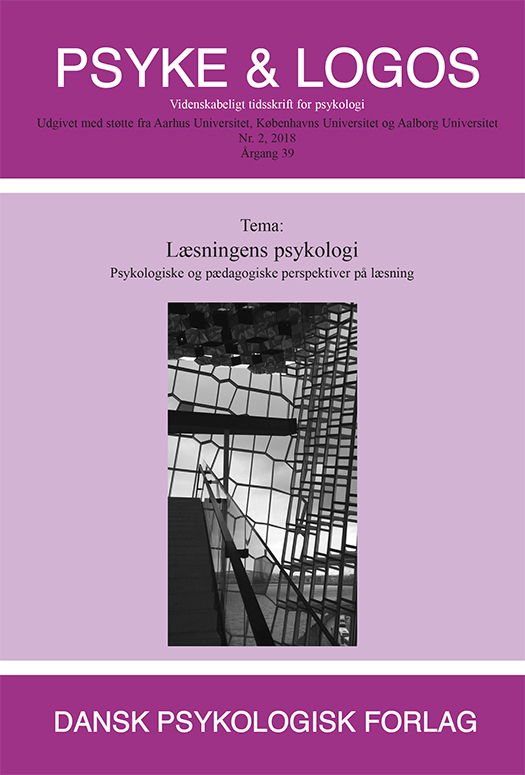Teaching inference-making: some possibilities and limitations
DOI:
https://doi.org/10.7146/pl.v39i2.112415Keywords:
inferens, læsning, børnAbstract
It is easy to see that texts do not tell the whole story. Rather, they can be seen as detailed instructions to readers about what background knowledge they
should activate and combine into a coherent mental model – by means of inferences. Sometimes students fail to make such knowledge-demanding inferences
because they fail to activate the relevant knowledge. In a first study, 11-year-old students were taught to activate and integrate relevant background
knowledge by means of graphic organisers. The teaching turned out to be highly effective not only for inference-making in reading but also for
reading comprehension in general. In contrast, a second, similar study yielded much fewer convincing results. The present paper summarises these studies and discusses how inferences with expository texts are particularly demanding because they draw on background information that is not a simple and shared human experience. Further implications for the teaching of reading comprehension are discussed.
Downloads
Published
How to Cite
Issue
Section
License
Ophavsret er tidsskriftets og forfatternes. Det er gældende praksis, at artikler publiceret i Psyke & Logos, som efterfølgende oversættes til andet sprog, af forfatteren frit kan publiceres i internationale tidsskrifter, dog således at det ved reference fremgår, at den oversatte artikel har et forlæg i en dansksproget version i Psyke & Logos. Artikler kan frit deles og linkes til på forsknings- og undervisningsnetværk (så som Blackboard). Link foretrækkes, fordi det giver oplysning om brug af tidsskriftets artikler.




